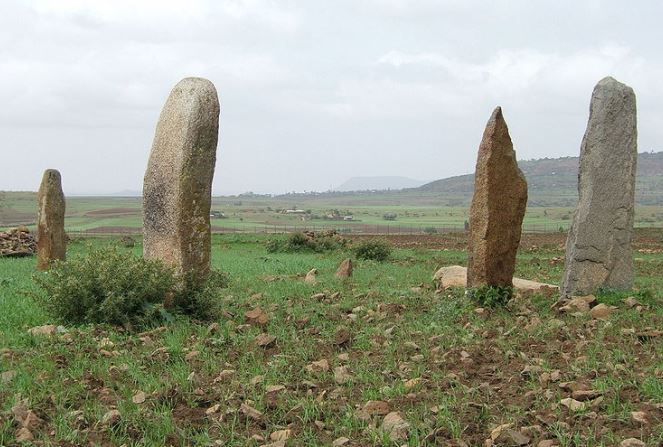In Memory of Two Great Artists
 Yaphet Frederick Samuel Kotto (1939-2021) was born in New York City. His mother came from a family with Caribbean roots, and converted to Judaism in order to marry his father, an observant Jewish immigrant from Cameroon. Kotto was raised religious, and would later describe how walking to the synagogue with a kippah on his head led to some “heavy fistfights” with anti-Semites. He went to acting school at 16, and three years later appeared in his first play, Othello. Kotto acted in a number of Broadway productions before moving to Hollywood. After a decade of small film roles, Kotto was cast as the Bond villain Mr. Big in Live and Let Die. In 1977, he played Idi Amin in Raid on Entebbe about the daring Israeli mission to save hostages in Uganda, for which he was nominated Outstanding Supporting Actor at the Emmy Awards. Kotto also starred in Alien, The Running Man (alongside Arnold Schwarzenegger), and Midnight Run (with Robert De Niro). All in all, he appeared in over 60 movies and over a dozen TV shows. He once said in an interview that had he not become an actor, he would have become a rabbi. Sadly, Kotto passed away earlier this year.
Yaphet Frederick Samuel Kotto (1939-2021) was born in New York City. His mother came from a family with Caribbean roots, and converted to Judaism in order to marry his father, an observant Jewish immigrant from Cameroon. Kotto was raised religious, and would later describe how walking to the synagogue with a kippah on his head led to some “heavy fistfights” with anti-Semites. He went to acting school at 16, and three years later appeared in his first play, Othello. Kotto acted in a number of Broadway productions before moving to Hollywood. After a decade of small film roles, Kotto was cast as the Bond villain Mr. Big in Live and Let Die. In 1977, he played Idi Amin in Raid on Entebbe about the daring Israeli mission to save hostages in Uganda, for which he was nominated Outstanding Supporting Actor at the Emmy Awards. Kotto also starred in Alien, The Running Man (alongside Arnold Schwarzenegger), and Midnight Run (with Robert De Niro). All in all, he appeared in over 60 movies and over a dozen TV shows. He once said in an interview that had he not become an actor, he would have become a rabbi. Sadly, Kotto passed away earlier this year.
 A fellow artist from New York who sadly passed away this year is James Richard Steinman (1947-2021). While studying at Amherst College, Steinman began writing music and lyrics for a number of school plays. In 1972, he wrote the music for the musical Rhinegold. The following year his first song was released commercially on Yvonne Elliman’s album. For much of the rest of the decade, he worked with the band Meat Loaf and wrote some of their greatest hits, along with one of the bestselling music albums of all time, Bat Out of Hell. In 1983, Steinman produced Bonnie Tyler’s album Faster Than the Speed of Night, and wrote its hit song “Total Eclipse of the Heart”. That year, it was the top song on the Billboard charts, followed by Air Supply’s “Making Love Out of Nothing at All”—which was also written by Steinman! All in all, Steinman wrote popular theme songs for television shows, soundtracks for movies, as well as music and lyrics for a number of stage productions. He wrote hit songs for Barry Manilow, Barbra Streisand, Celine Dion (“It’s All Coming Back to Me Now”), and even Hulk Hogan. He has been called “the greatest ever composer of symphonic rock” and the “father of the power ballad”.
A fellow artist from New York who sadly passed away this year is James Richard Steinman (1947-2021). While studying at Amherst College, Steinman began writing music and lyrics for a number of school plays. In 1972, he wrote the music for the musical Rhinegold. The following year his first song was released commercially on Yvonne Elliman’s album. For much of the rest of the decade, he worked with the band Meat Loaf and wrote some of their greatest hits, along with one of the bestselling music albums of all time, Bat Out of Hell. In 1983, Steinman produced Bonnie Tyler’s album Faster Than the Speed of Night, and wrote its hit song “Total Eclipse of the Heart”. That year, it was the top song on the Billboard charts, followed by Air Supply’s “Making Love Out of Nothing at All”—which was also written by Steinman! All in all, Steinman wrote popular theme songs for television shows, soundtracks for movies, as well as music and lyrics for a number of stage productions. He wrote hit songs for Barry Manilow, Barbra Streisand, Celine Dion (“It’s All Coming Back to Me Now”), and even Hulk Hogan. He has been called “the greatest ever composer of symphonic rock” and the “father of the power ballad”.
Words of the Week
If a word is worth one coin, silence is worth two.
– Talmud (Megillah 18a)

 Gershom Sizomu (b. 1972) was born in Uganda in a village of the Abayudaya, a group of Ugandans who had converted to Judaism a century ago under the leadership of (former Jew of the Week)
Gershom Sizomu (b. 1972) was born in Uganda in a village of the Abayudaya, a group of Ugandans who had converted to Judaism a century ago under the leadership of (former Jew of the Week)  Yehudit (c. 960 CE) was born in the Jewish-Ethiopian Kingdom of Beta Israel (also known as the Kingdom of Semien), the daughter of King Gideon IV, who traced his lineage back to King Solomon. According to tradition, the Ethiopian Beta Israel Jews are descendants of the Biblical Israelite tribe of Dan – a claim supported by historical texts from the 9th and 10th century that refer to an independent Jewish Danite kingdom in Africa. In the 900s CE, the Christian Ethiopian Kingdom of Axum began an aggressive expansion, and sought to forcibly convert all Jews and pagans. King Gideon was killed in battle, leaving the monarchy to his daughter Yehudit, or Gudit. Gudit formed an alliance with a neighbouring kingdom, and soon raised a massive confederation to defeat Axum. Axum’s capital was destroyed, and its churches and monuments burned down. Gudit saved the Jewish population from forced conversion. The community would survive until modern times, and most have now settled in Israel. Gudit went on to sit on the throne for 40 years, establishing a new dynasty that would last three centuries. Historical records suggest she laid down vast trade networks, and ruled over a wealthy kingdom. In one tradition, she is said to have married a Syrian-Jewish nobleman. The golden age she ushered in lasted until 1270, when a new Christian dynasty got the upper hand. The Jewish Beta Israel Kingdom would survive until 1627, when it was annexed and dissolved.
Yehudit (c. 960 CE) was born in the Jewish-Ethiopian Kingdom of Beta Israel (also known as the Kingdom of Semien), the daughter of King Gideon IV, who traced his lineage back to King Solomon. According to tradition, the Ethiopian Beta Israel Jews are descendants of the Biblical Israelite tribe of Dan – a claim supported by historical texts from the 9th and 10th century that refer to an independent Jewish Danite kingdom in Africa. In the 900s CE, the Christian Ethiopian Kingdom of Axum began an aggressive expansion, and sought to forcibly convert all Jews and pagans. King Gideon was killed in battle, leaving the monarchy to his daughter Yehudit, or Gudit. Gudit formed an alliance with a neighbouring kingdom, and soon raised a massive confederation to defeat Axum. Axum’s capital was destroyed, and its churches and monuments burned down. Gudit saved the Jewish population from forced conversion. The community would survive until modern times, and most have now settled in Israel. Gudit went on to sit on the throne for 40 years, establishing a new dynasty that would last three centuries. Historical records suggest she laid down vast trade networks, and ruled over a wealthy kingdom. In one tradition, she is said to have married a Syrian-Jewish nobleman. The golden age she ushered in lasted until 1270, when a new Christian dynasty got the upper hand. The Jewish Beta Israel Kingdom would survive until 1627, when it was annexed and dissolved.